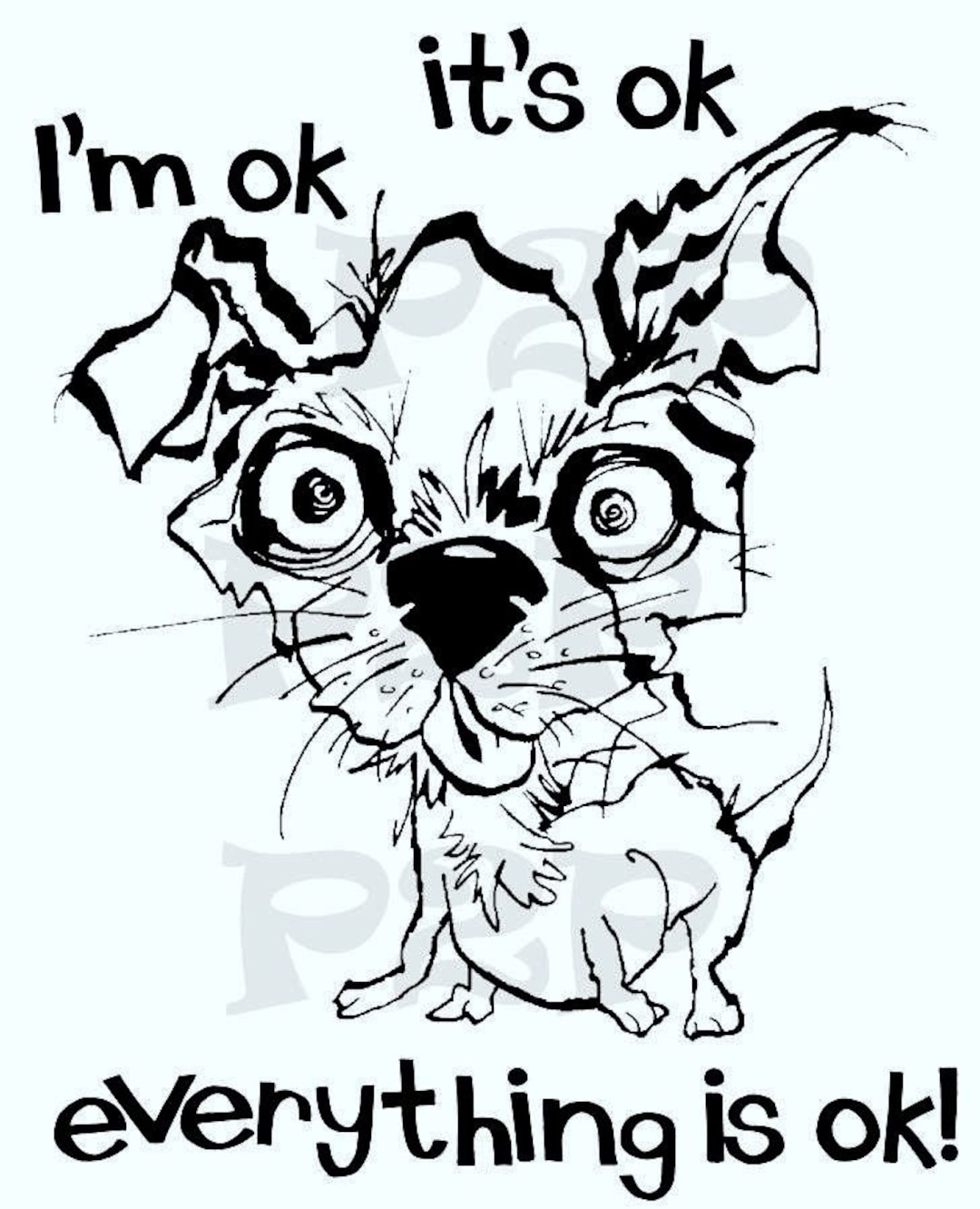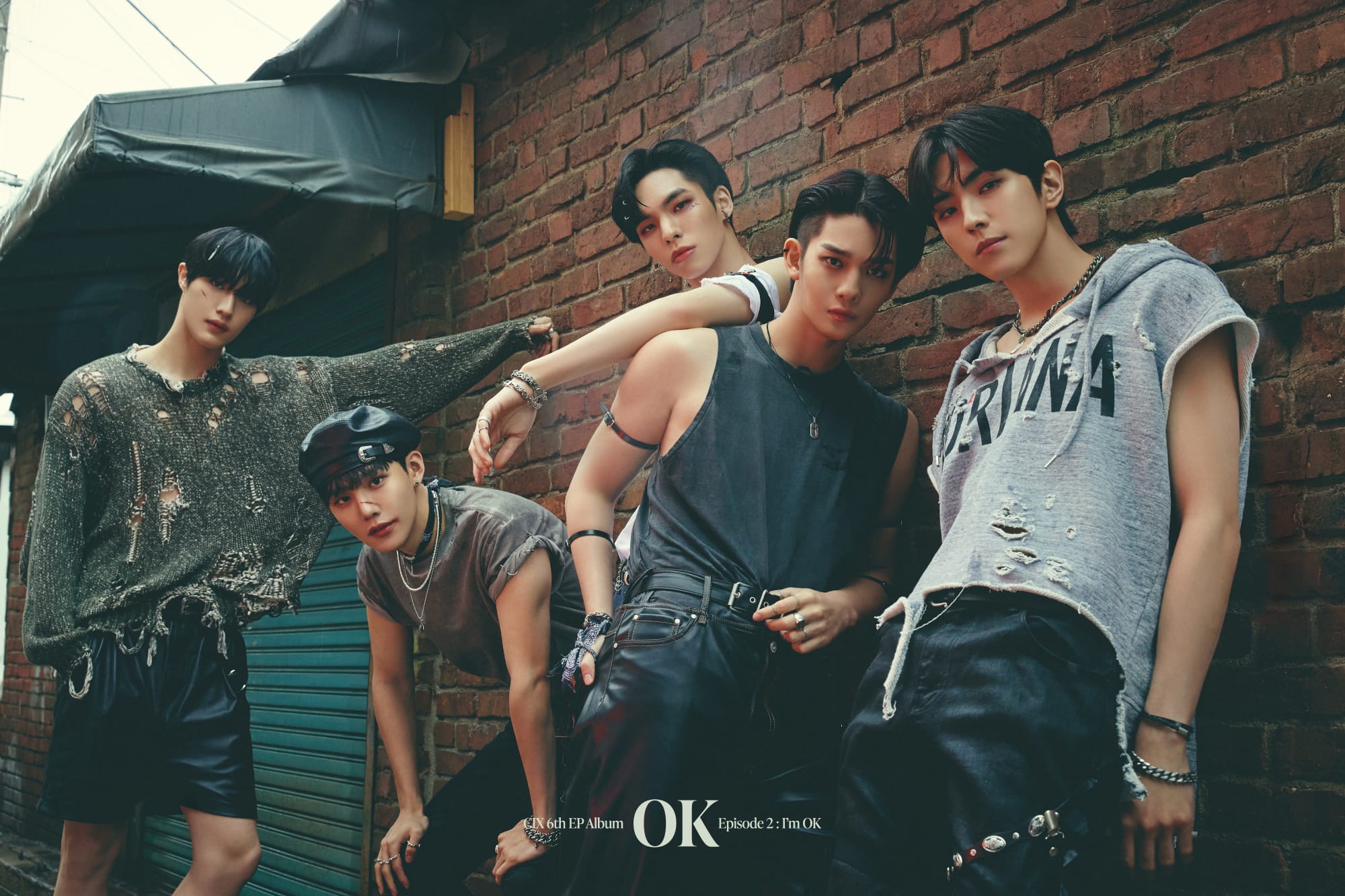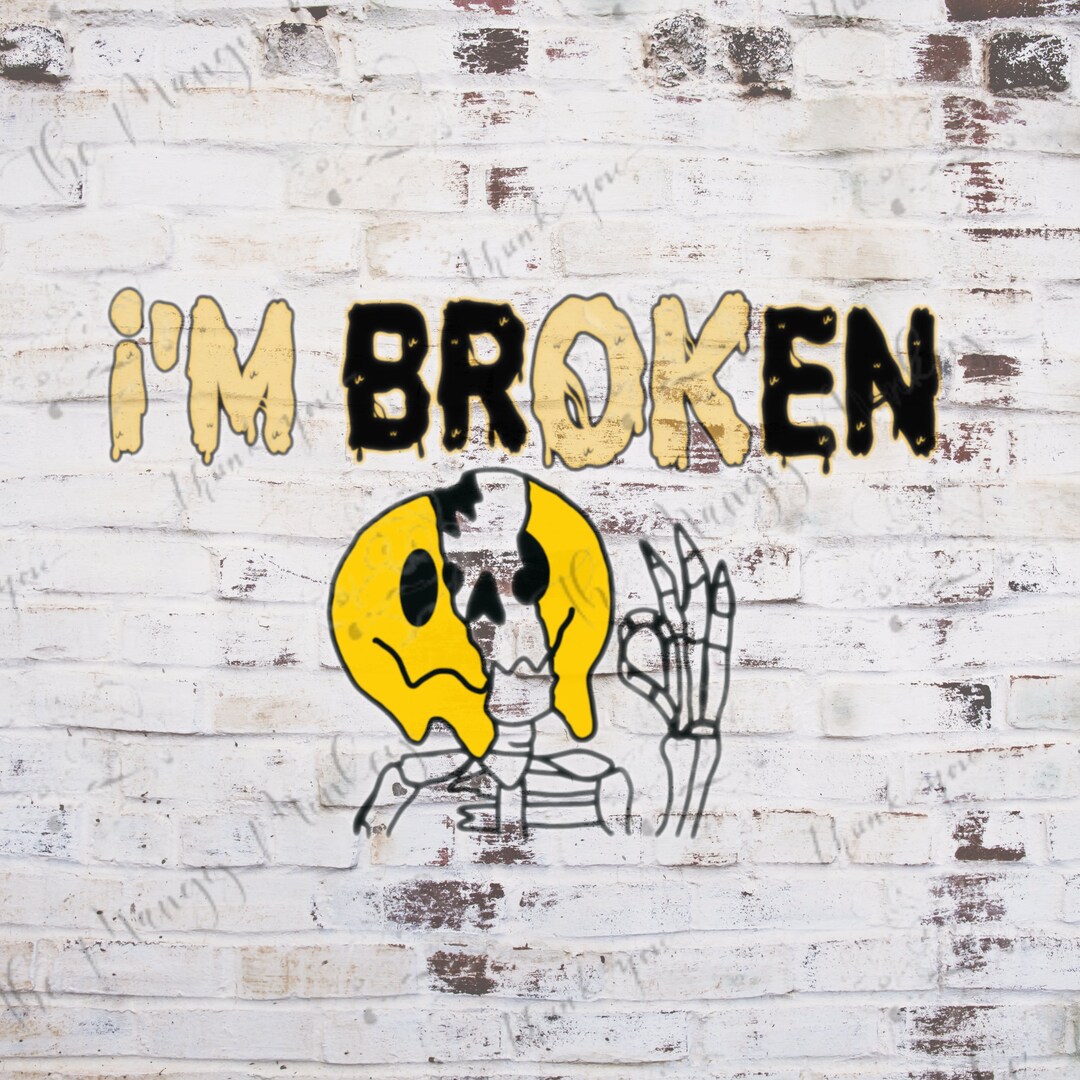The Power Of 'I'm OK': Navigating Emotions & Authenticity
The phrase "I'm OK" is arguably one of the most common responses in everyday conversation, a seemingly innocuous two-word declaration that often carries more weight than meets the eye. From a casual greeting to a defensive shield, "I'm OK" can signify genuine well-being, a polite dismissal, or a deeply hidden struggle. This article delves into the multifaceted nature of this ubiquitous expression, exploring its psychological underpinnings, its role in social interactions, and how we can move towards a more authentic understanding of what it truly means to be "I'm OK."
We’ve all said it, and we’ve all heard it. Whether in response to a concerned friend, a nosy colleague, or even to ourselves in the mirror, "I'm OK" serves as a linguistic chameleon, adapting its meaning to fit countless contexts. But what happens when this simple affirmation becomes a default, a reflex that prevents us from truly connecting with our feelings or with others? Let's unpack the layers of "I'm OK" and discover how embracing authenticity can lead to a more fulfilling emotional landscape.
Table of Contents
- The Ubiquitous "I'm OK": More Than Just Words
- Transactional Analysis and the "I'm OK" Positions
- The Authentic "I'm OK": A State of Acceptance
- Beyond the Simple Affirmation: Alternative Expressions of Acceptance
- The Korean Wave's Take: "I'm OK" in K-Pop and Beyond
- The Paradox of "I'm OK": When Solitude Becomes a Choice
- Battling Burnout: Making Time for Genuine "I'm OK" Moments
- Cultivating Your Authentic "I'm OK"
The Ubiquitous "I'm OK": More Than Just Words
The phrase "I'm OK" resonates across cultures and contexts, often serving as a quick, convenient response. From the upbeat, almost defiant declaration in Little Big and Ilich's track, "i'm okay (okay) i'm okay (he's okay) i'm okay (all day) i'm not alcoholic," which uses repetition to assert a state of being, to the more nuanced emotional landscape depicted in songs like Tate McRae's "it's ok i'm ok," the phrase is deeply embedded in our linguistic fabric. It can be a statement of fact, a wish, or even a performance. Understanding its various uses is the first step toward deciphering its true meaning in any given situation.
- Xxx Is Equal To
- Ryma Bomba
- Pining For Kim
- Honeytoon
- Raspberry Pi Batch Job Over Internet Remote Work From Home
The Social Shield: Why We Say "I'm OK" When We're Not
One of the most common reasons people utter "I'm OK" is as a social shield. As the "Data Kalimat" insightfully points out, "Saying 'i’m okay' is the easiest way of getting out of having to explain how you’re actually feeling." In a fast-paced world, detailed emotional explanations can feel burdensome, both for the speaker and the listener. We might fear judgment, pity, or simply the awkwardness of vulnerability. This protective mechanism allows us to maintain a facade of normalcy, avoiding deeper conversations we might not be ready for, or that we perceive others aren't ready to hear. It's a quick exit strategy from emotional disclosure, a way to keep things light and manageable, even when our internal world is anything but. This isn't always a negative thing; sometimes, a quick "I'm OK" is necessary to navigate a situation without getting bogged down in personal details.
The Burden of Not Bugging Others
Beyond simply avoiding explanation, a significant driver behind saying "I'm OK" when we're struggling is the fear of being a burden. "We say we’re okay because we don’t want to bug others with our issues or because..." This sentiment is deeply ingrained in many cultures, where self-reliance is highly valued. We might worry about adding to someone else's stress, or that our problems are too trivial to bother them with. This self-silencing, while seemingly considerate, can lead to isolation and a build-up of unaddressed emotional distress. It's a testament to our empathy, perhaps, but also a potential barrier to receiving the support we genuinely need. The irony is that often, the people who care about us would much rather be "bugged" than see us suffer in silence, believing we are "I'm OK" when we are not.
Transactional Analysis and the "I'm OK" Positions
The concept of "I'm OK" extends beyond simple conversation into the realm of psychological theory, particularly Transactional Analysis (TA). Developed by Eric Berne, TA explores how our ego states (Parent, Adult, Child) interact in communication. Within TA, psychologist Thomas Harris popularized the "OK Corral" or "Life Positions," which describe fundamental beliefs about oneself and others. These positions are often formed in childhood and influence our interactions throughout life. Understanding these positions can shed light on why we feel the way we do about ourselves and others, and how that impacts our ability to truly be "I'm OK."
The Child's Perception: "I'm Not OK, You're OK"
According to Harris, the most common life position is "I'm Not OK, You're OK." This position is often attributed to children's perceptions of adults. Children, being dependent and learning, naturally view adults as "strong and competent," leading them to "view themselves as less capable." This foundational belief can persist into adulthood, manifesting as feelings of inadequacy, a need for external validation, or a constant striving for perfection. If you often feel like you're falling short compared to others, or that others inherently possess qualities you lack, you might be operating from this "I'm Not OK, You're OK" stance. This position can make it difficult to genuinely feel "I'm OK" about oneself, as there's always a perceived deficit.
When Trauma Shapes "I'm Not OK, You're Not OK"
While "I'm Not OK, You're OK" is common, other positions arise from different life experiences. Harris notes that "Children who are abused may conclude i’m not ok, you’re not ok or i’m ok." The "I'm Not OK, You're Not OK" position is often associated with severe distress, trauma, or neglect. In this view, both the self and others are perceived as fundamentally flawed, untrustworthy, or incapable. This can lead to feelings of hopelessness, cynicism, and a pervasive sense of despair. Individuals operating from this position might struggle with trust, intimacy, and finding meaning in life, as they perceive the world as a dangerous or unsupportive place where no one, including themselves, is truly "I'm OK." The "I'm OK, You're Not OK" position, while less common, can arise from overindulgence or a sense of superiority, leading to arrogance and a dismissive attitude towards others.
The Authentic "I'm OK": A State of Acceptance
Beyond the social shield or psychological positions, there's a genuine, healthy state of being "I'm OK." This isn't about suppressing feelings or pretending everything is perfect; it's about acceptance. "Sometimes, you’ll want to let people know that you’re perfectly okay with something that is happening or a decision that has been taken." This reflects a state of inner peace and contentment with circumstances, even if they aren't ideal. It's about acknowledging reality without resistance, finding a sense of calm amidst the chaos, and trusting your ability to navigate whatever comes your way. This authentic "I'm OK" is a powerful state, signifying resilience, self-awareness, and a healthy relationship with one's emotions. It means you've processed, accepted, and moved forward, or are at peace with the current situation.
Beyond the Simple Affirmation: Alternative Expressions of Acceptance
While "I'm OK with that" is perfectly understandable, sometimes we seek variety or a more nuanced way to express our acceptance. The provided data suggests that "maybe you won’t want to literally say 'i’m okay with that'." This desire for linguistic flexibility is natural. The article highlights that "The three preferred alternatives are 'it’s okay with me', … 9 better ways to say 'i’m okay with.'" These alternatives, such as "I'm good with that," "That works for me," "I'm fine with it," "No problem," "Sounds good," "I'm content with that," "I have no objections," "I concur," or "Consider it done," offer different shades of meaning. They can convey enthusiasm, neutrality, or a formal agreement. Expanding our vocabulary for acceptance not only makes our communication more engaging but also allows us to express our precise level of comfort or agreement, moving beyond the default "I'm OK" into richer, more specific affirmations.
The Korean Wave's Take: "I'm OK" in K-Pop and Beyond
The phrase "I'm OK" transcends language barriers, finding poignant expression in global music. The "Data Kalimat" specifically references the lyrics from BOYdPOD ft. Billkin's "I’m OK // Not OK" and the Korean lyrics for a song titled "I'm OK." These examples reveal a deeper, often melancholic, layer to the phrase. In the Korean lyrics, "I’m ok wirohaji ma dongjeonghaji ma gyeote isseo jul piryo eopseo gwaenchaneunikka" translates to "I’m OK, don’t comfort me, don’t pity me, you don’t need to be by my side, because I’m fine." This powerful declaration is not a simple affirmation of well-being, but a request for space, a rejection of sympathy, and an assertion of self-sufficiency. It hints at a deep-seated pain or weariness that prefers solitude over potentially superficial comfort. Similarly, "I’m ok geokjeonghaji ma shingyeong sseuji ma charari honja itneun ge nan iksukhanikka i’m ok" means "I’m OK, don’t worry, don’t mind me, I’m more used to being alone, so I’m OK." These lyrics beautifully capture the paradox of "I'm OK" – it can be a genuine state of independence, even if that independence stems from past hurts or a preference for self-reliance. This musical interpretation adds a profound layer to our understanding of the phrase, highlighting its potential as a boundary-setting statement rather than just a simple emotional status report.
The Paradox of "I'm OK": When Solitude Becomes a Choice
The Korean lyrics mentioned above bring to light a crucial aspect of "I'm OK" that often goes overlooked: the choice of solitude. "I’m ok geokjeonghaji ma shingyeong sseuji ma charari honja itneun ge nan iksukhanikka i’m ok" (I’m OK, don’t worry, don’t mind me, I’m more used to being alone, so I’m OK) is a testament to the idea that being "I'm OK" doesn't always mean being surrounded by people or seeking external validation. For some, true well-being is found in quiet introspection and self-reliance. The line "Nae seulpeumeun byeolgeo aniraneun deut useoneomgiryeoneun nega nan wonmangseureowo leave me alone naege dagaoji ma eochapi tteonagal saram jeongdeulkka bwa" (I resent you for trying to laugh off my sadness as if it's nothing, leave me alone, don't come near me, I might get attached to someone who's going to leave anyway) adds another layer of complexity. Here, "I'm OK" is a defense mechanism, a pre-emptive strike against potential heartbreak. It's a statement of self-preservation, where the comfort of being alone outweighs the risk of emotional pain from others. This paradox highlights that "I'm OK" can be a deeply personal and often protective declaration, a way to maintain emotional boundaries and safeguard one's inner world, even if it means pushing others away.
Battling Burnout: Making Time for Genuine "I'm OK" Moments
In our modern lives, the relentless pace and constant demands often push us to the brink of burnout. We operate on what's often called the "industrial revolution schedule," with "8 hours for work, 8 hours for sleep, and 8 hours to do what we want." However, the reality is that "those last 8 hours are often taken up by duties rather than play." This relentless cycle of obligations, from chores to errands to social commitments, leaves little room for genuine self-care and rejuvenation. "People burn out quickly when their lives revolve entirely around obligations." When we are constantly in a state of doing, rather than being, our ability to genuinely feel "I'm OK" diminishes. The constant pressure to perform, to be productive, and to meet external expectations can lead to chronic stress, exhaustion, and a feeling of being perpetually "not OK." To combat this, it's crucial to "Make time for activities that aren’t just obligations." These are the moments where we can truly recharge, reconnect with ourselves, and cultivate an authentic sense of well-being, allowing us to genuinely say, "I'm OK."
Cultivating Your Authentic "I'm OK"
Moving from a superficial "I'm OK" to a deeply felt, authentic one requires conscious effort and self-awareness. Here are some steps to cultivate this genuine state:
- **Practice Self-Reflection:** Regularly check in with yourself. Instead of automatically saying "I'm OK," pause and ask, "How am I *really* feeling?" Journaling, meditation, or simply quiet contemplation can help you identify your true emotional state.
- **Embrace Vulnerability (When Appropriate):** While it's not always necessary or safe to share everything, practice selective vulnerability with trusted individuals. Letting a close friend or family member know you're struggling, even with a simple "I'm actually not feeling great today," can be incredibly liberating and foster deeper connections.
- **Set Healthy Boundaries:** Learn to say "no" to obligations that drain you. Protect your "8 hours to do what we want" fiercely. This might mean declining invitations, delegating tasks, or simply scheduling downtime for yourself.
- **Prioritize Self-Care:** Engage in activities that genuinely replenish your energy and bring you joy, not just more duties. This could be anything from reading a book, listening to music (perhaps even "it's ok i'm ok" by Tate McRae for reflection), spending time in nature, or pursuing a hobby. These moments are vital for preventing burnout and fostering a sense of inner peace.
- **Challenge Your "Life Positions":** If you find yourself consistently feeling "I'm Not OK," explore the roots of these beliefs. Therapy, particularly approaches like Transactional Analysis, can provide tools to re-evaluate these core assumptions and develop a healthier "I'm OK, You're OK" life position.
- **Seek Professional Support:** If your "not OK" feelings persist, or if you're struggling with deep-seated issues like trauma, don't hesitate to reach out to a mental health professional. They can provide guidance, coping strategies, and a safe space to process complex emotions.
Ultimately, being "I'm OK" is a dynamic state, not a fixed destination. It involves continuous self-awareness, emotional honesty, and the courage to live authentically. It's about recognizing when the phrase is a shield and when it's a genuine reflection of inner peace. By understanding its nuances and actively working towards a more authentic relationship with our emotions, we can truly navigate life's challenges with resilience and well-being.
Conclusion
The seemingly simple phrase "I'm OK" holds a complex tapestry of meanings, from a polite social convention to a profound declaration of independence or a cry for space. We've explored its role as a social shield, a default response to avoid vulnerability, and its psychological underpinnings through Transactional Analysis. We've also seen how global artists like Little Big, Ilich, Tate McRae, and BOYdPOD ft. Billkin capture its multifaceted nature in their music, reflecting themes of self-reliance, hidden sadness, and the desire for solitude. Crucially, we've highlighted the importance of distinguishing between a superficial "I'm OK" and an authentic state of acceptance and well-being, especially in a world prone to burnout.
Moving forward, let's strive for greater honesty in our responses, both to ourselves and to others. It's okay not to be okay, and it's equally okay to genuinely be "I'm OK." By cultivating self-awareness, setting boundaries, and prioritizing self-care, we can foster a deeper, more authentic sense of well-being. What does "I'm OK" mean to you? Share your thoughts in the comments below, and consider exploring other articles on our site about emotional well-being and personal growth.
- Who Is Conchita Mart%C3%ADnez Married To
- Securely Connect Remote Iot Vpc Raspberry Pi Aws Free
- Loubna Active
- Buscar Kid And His Mom Cctv
- %E7%A5%9E%E6%9C%A8%E9%BA%97

I'm Ok It's Ok Everything is Ok PNG Clip Art - Etsy

CIX Makes Comeback With 'OK' Episode 2: I'm OK' - Finale For The 'OK

I'm Broken / I'm OK Digital Download, Smiley Face Skellington